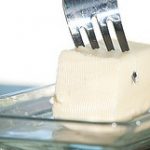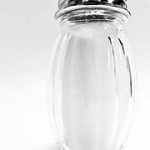Is orange juice healthy? According to many health gurus as of late, orange juice and other fruit juices should be relegated to the category of foods-that-normal-people-eat-but-are-clearly-going-to-kill-you. You’ve probably heard them before. “It’s that deadly fructose,” they say. “Juice is nothing more than ‘sugar water,'” they say. “Drink orange juice every day at breakfast and you’ll get the ‘beetus,” they say.
Well I say, how about we look at the differences between the traditional orange juice that your ancestors many generations back probably consumed (and lived to tell the tale)—and the modern, commercialized version of OJ we see today. There are significant differences, and while I’m not exactly jumping on the “deadly fructose ‘beetus-maker” bandwagon, I do think there’s some legitimate cautions to be made against processed orange juice. As well as some pretty awesome benefits to highlight as to why the real deal is actually perfectly healthy for you.
Why you should drink more fresh orange juice (and avoid the highly-processed kind)
I could probably give you a lot more, but here’s 8 reasons to start with.
It’s eight-thousand times more delicious than store-bought
I mean, duh. I don’t think we even need to discuss the frozen concentrate version in comparison here, either.
Life is just too short to drink mediocre juice. Fresh-squeezed OJ is the freaking nectar of the gods. May it accompany all your breakfasts, all of the days of your life. Amen.
There’s chemical flavoring in your ‘100% Pure’ OJ
Yeah, have you heard about this yet?
So, apparently even when it says, “100% orange juice,” and the label only has one ingredient (orange juice), the juice is likely to contain flavorings out of chemicals similar to what perfume makers use, and they don’t have to include that on the label. (Because the synthetic flavor chemicals were “derived” from oranges). Manufacturers do this to keep the flavor of the juice consistent from batch to batch, and also because if they didn’t add the chemical flavor, the juice would be pretty much tasteless.
After squeezing the oranges, the juice is stored in these huge vats where the oxygen is removed—that prevents the juice from spoiling (for over a YEAR), but also takes out all the flavor. So, in come the same people who make perfumes for Dior and Calvin Klein, to whip up some fake chemical “flavor packs” to add to the juice. (source) Eau de Minute Maid, and the like. Yum.
Store-bought orange juice is also likely to be loaded with fluoride and other water-based chemicals, because unless it’s “not from concentrate,” most orange juice is concentrated with those chemical “flavor packs” at the plant, and then reconstituted later on with tap water. And who knows what’s in that.
Fresh orange juice made at home is, obviously, devoid of chemical “flavor packs,” but does contain, you know, lots of actual flavor. And instead of contributing to your toxic load, it helps your body eliminate harmful substances because it contains so many beneficial antioxidants, vitamins, minerals, and enzymes that are supportive to your body’s detoxification pathways.
Fresh OJ contains beneficial enzymes and other nutrients that are destroyed in pasteurization
Orange juice contains beneficial antioxidant polyphenols as well as key digestive enzymes—all of which are completely destroyed when the juice is pasteurized. Scorching the juice in the name of food “safety” also cuts way down on vitamins, especially vitamin C. These are all nutrients which are very sensitive to heat and oxidation, and will break down when exposed to the high temperatures of the pasteurization process in commercial juice production. So sometimes, manufacturers will add back in vitamin C to compensate for the loss.
But fresh OJ is loaded with all those great naturally-occurring antioxidants and enzymes! Plus, while pasteurization is intended to protect against health concerns associated with juice production, raw orange juice naturally possesses antimicrobial properties from the vitamin C, citric acid, and other compounds within it. When you keep all of those in tact, instead of oxidizing the crap out of it, orange juice protects itself as well as supporting your health!
Fresh OJ contains lots of vitamin C and bioflavanoids, making it a powerful antioxidant source
Speaking of antioxidants, ever wonder why vitamin C is supposed to be so supportive to your immune system? It’s because it actually increases your white blood cell count—as long as it’s coming from a whole food source, with the entire C complex intact. Vitamin C is one of the most major and important antioxidants your body needs for optimal health. And as we all know, orange juice is a great source for it—especially when it’s raw.
Fresh, raw OJ also is rich in bioflavanoids, which are plant pigments that enhance the bioavailability of nutrients such as vitamin C. Even when added to synthetic vitamin C, bioflavanoids significantly increase how much C is absorbed into your system. Combine them with the rich and untampered-with C complex in fresh oranges, and you’ve got one of the best sources of one of the best antioxidants you could possibly consume.
Orange juice is an anti-aging collagen booster
Put down that mug of gelatin-rich bone broth, y’all. Did you know that your body can’t actually assimilate and produce collagen without vitamin C? Yup!
All the gelatin in the world won’t help fill those fine lines and support your skin’s elasticity without adequate vitamin C. The antioxidant vitamin is essential for collagen production, which is not only good for looking younger, but supporting a healthy digestive system, strong bones & teeth, and more. And no, a C supplement often isn’t enough, because unless it’s a whole-food form, it won’t contain the full vitamin C complex. Getting vitamin C from food sources is ideal, and orange juice has plenty of it. So if you want the beauty benefits of collagen in your broth, drink your juice, too!
Fresh orange juice is a good source of magnesium and other minerals and vitamins
Orange juice is a surprising mineral powerhouse. One quart of orange juice contains over 100 milligrams of magnesium! That’s a significant portion of the amount of magnesium you should be getting every day. Magnesium is an incredibly important substance. It’s necessary for cellular metabolism of ATP, or the energy your body needs to carry out all of its functions, as well as all your steroidal hormones.
Worried about all that sugar you’d be drinking, though? Well, the magnesium that comes in your OJ is actually essential for blood sugar regulation, too, and keeps blood glucose levels normalized. As well as potassium, another key nutrient found plentifully in orange juice. Potassium is involved in regulating both blood sugar and insulin levels. Potassium works by getting sugar into the cell, which regulates cellular metabolism and makes use of that sugar by using it as fuel.
Potassium has other benefits, too. It determines cellular hydration, by keeping sodium in circulation, which regulates water retention and blood volume. Potassium is also vital for carbohydrate metabolism, protein synthesis, and much more. Just one small 8 ounce glass of fresh OJ provides about 15% of your daily requirements for potassium.
In addition to all those awesome minerals, raw orange juice boasts significant amounts of folate (19% of your DV from one 8 ounce glass), B-6, thiamin, choline, and vitamin A. And the vitamin C count? A whopping 207% of your recommended daily value in one little glass.
Orange juice supports your adrenals and thyroid
The many anti-stress nutrients in orange juice, including magnesium, vitamin C, and potassium—act as a support system for your adrenals, thyroid, and stress-response system. These nutrients are essential in the production and conversion of active thyroid hormone T3. Without them, your thyroid can’t keep up with your body’s hormonal demands, and overall physiological stress is increased.
When the adrenal glands are overworked due to chronic stress and lack of nutritional stores, they may not be able to supply your body with hormones such as cortisol, in the amounts needed to maintain homeostasis in your everyday life. For example, cortisol is supposed to rise in the morning, get you up and ready and hungry to eat a nice big breakfast, and then taper off once your belly is full. But your adrenals can’t produce cortisol or function normally without adequate potassium, magnesium, vitamin C, B vitamins, and other nutrients. You’ll get a nice big dose of those of them in a glass of fresh orange juice, though!
If you really want to boost your OJ’s thyroid-and-adrenal-supporting superpowers, you’ll want to add a few shakes of sea salt to your cup. Salt down-regulates stress hormones and supports both of these glands immensely. But overall, OJ itself contains an impressive array of nutrients which work together synergistically to support hormone health.
And this isn’t even touching the other big beneficial nutrient OJ provides—sugar.
Orange juice contains beneficial natural sugars that lower stress and boost metabolism
Yes, that’s right—beneficial sugars. If you think all sugar (and especially fructose, that devil) is evil, you’re misinformed.
The sugar in orange juice comes in three different forms—sucrose, glucose, and fructose. But sucrose is glucose and fructose bonded together, so really we’re just dealing with glucose and fructose here. Taking that a step further, fructose gets converted into glucose in the liver—so when all’s said and done, we’re just talking about glucose.
And what’s glucose good for? Oh, I don’t know… providing fuel for every single cell in your body to function, for one thing. If you don’t consume glucose from carbohydrates providing sugars, your body will do whatever it needs to make it itself—including taking protein from your muscle tissue to turn it into that much-needed sugar. Everyone knows you need a certain level of sugar (that’d be glucose) in your blood, otherwise you’d die.
Having adequate glucose intake supports your body’s metabolism in a multitude of ways. When you’re too low in blood sugar (which happens when you avoid sugar), stress hormones such as adrenaline and cortisol skyrocket to damaging levels, because they’re responsible for restoring the sugar to your bloodstream (like by using that cool eating-your-own-muscles trick). But give yourself some glucose straight-up? That sends the message to your body that, “Hey, we’re good here, stress hormones. You can chill.”
Cellular metabolism—the process by which your body produces energy in order to function—is entirely dependent on providing enough fuel to the cells. What’s the fuel they need most? (Yup—you’re onto me…) Glucose. And you get plenty of it, from a natural whole food source, with orange juice.
I’m tellin’ you guys. Sugary orange juice. It does a body good.
How to Make Your Own Orange Juice at Home
But of course, the same probably can’t be said of the hyper-processed OJ you find at the store. There are some good brands out there which are either flash or low-temp pasteurized, minimally processed, and
There are several different ways to fresh-squeeze your own orange juice, using a variety of different tools. One tool, though, is surprisingly ineffective at making orange juice—a regular vegetable juicer. Those big beastly juicers are great for things like carrots, beets, and greens, but not so good at managing citrus fruits. So, you’ll want to get an actual citrus juicer to get the job done.
There’s some pretty low-tech gadgets like these:
And then there’s some that are a little more high-powered. I just got this thing and am obsessed:
I’ll have to upload a video soon showing how I use it. It’s really simple, makes a ton of juice in a short amount of time, and isn’t difficult to clean. Highly recommended.
Oh, and by the way? Oranges are currently ranked number 31 on the EWG pesticide residue data list—meaning they are well outside the “Dirty Dozen,” most pesticide-contaminated fruits & veggies. A few spots up and they’d have made the “Clean Fifteen.” For me, that means I’m okay with buying non-organic oranges. If I lived in a place where oranges would be local to me, I’d make the effort to buy local and farmer-direct, but here in the Pacific Northwest, that isn’t the case. So, a giant, cheap bag of them from Costco it is. That makes me lots of amazing fresh juice, and cheaper than already-made juice from the store!





We went to Disney World when I was 14 and we stopped on the side of the road on the way down and back and bought OJ right out of the groves in the fun little orange shaped bottles with a straw….absolutely the best.
I have a citrus juicer at home and love using it. I like to make a mix of orange and grapefruit juices. I don’t refigerate the fruit itself so I’ll juice them then add a bunch of ice cubes to chill it. It is so DELICIOUS! And now that I’ve read this post I am craving fresh OJ like a madwoman. I’ll have to have to buy some oranges and have some bed time OJ tonight.
I’m sorry but saying that fructose ends up as glucose so “they’re the same” is wrong and misleading.
I’d recommend you watch the presentation by Dr. Lustig, Sugar: The Bitter Truth.
Here, it clearly explains just how different fructose is from glucose. Especially in the way it’s processed in the liver. Sure, after much energy cost by the liver, you ultimately get glucose out of fructose but you also get a host of toxic byproducts created in its synthesis by the liver. Boldly put, fructose is a toxin. A poison. Still, nature gave us the antidote to such toxin which is fiber. That’s why orange juice isn’t that great for you. It surely can’t beat eating the whole orange when it comes to fiber intake. Not to mention you eat less oranges when eaten whole, than when juiced. Less fructose, more health.
Ohhh, oh, oh. My dear Will. You are not going to be a huge fan of mine if you’re a Lustig-worshipper. I’m terribly sorry.
Why not just eat an orange rather than juicing it? You get the benefits of the fibre then too!
Because you can only eat so many oranges in a sitting. I like both eating and drinking my oranges!
Thanks for the very thorough explanation! I always have just a little bit of juice when I have any, because I was always afraid of the calories. Nothing wakes you up in the morning like a fresh cold glass of OJ.
I really appreciate this post.
While I am one of those people who would rather eat my calories than drink them, I tend to prefer eating whole oranges. However, when I’m sick with a cold, I find that the ONLY thing that makes me feel better is to have a fresh glass of orange juice with a few drops of oregano oil mixed in. It gets rid of my cold almost immediately. I’ve been doing this for almost 2 years and have only been sick twice. Both times, I was out of oranges and oregano oil. Previous to that, I used to get sick like clockwork about 5 or 6 times a year (being a teacher will do that to you).
So I do appreciate the pro-orange juice theme of this post.
p.s. I have tried using the oregano oil by itself and also with water. Doesn’t work for me. I really need to have the fresh orange juice with it. I figure it’s all the vitamin C at work alongside whatever anti-bacterial properties are at work in the oil of oregano.
I love Oranges! Another source for Vitamin C. I am taking Iron Pills together with Vitamin C pills, just noticed my body can’t handle the Vita C pills, so I might replace it with Natural Fresh Squeezed OJ instead to see how it goes.
If all goes well, then I’m dumping Vita C for OJ.
After reading about 8 benefits of fresh oj
I have started taking a glass of oj daily instead of dinner. Hope it give benefit and does not harm. As it is sweet everybody is afraid of suger.
Hope it become health tonic.